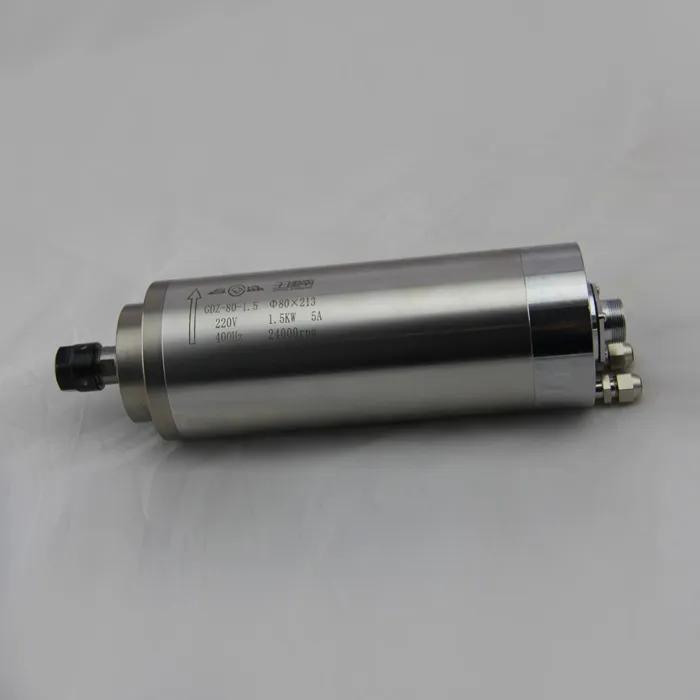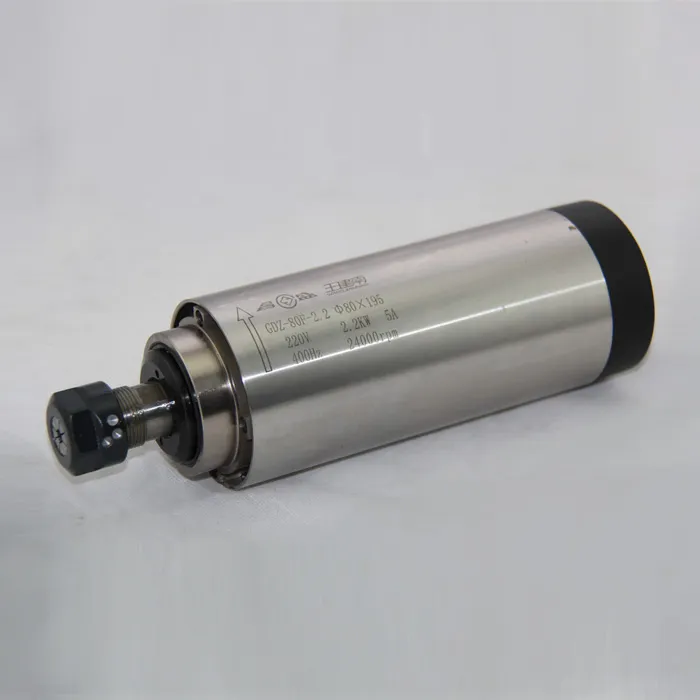CNC (Computer Numerical Control) training is a valuable investment for those interested in machining, manufacturing, and operating CNC machines. If you’ve ever wondered, how much does CNC training cost?, this article provides a comprehensive overview, covering the different types of CNC training, the costs involved, and various options to consider. Whether you’re looking to become a certified CNC operator or just exploring the opportunities in machine tool technology, understanding the costs can help you make an informed decision.
Introduction to CNC Training
What is CNC Training?
CNC training involves learning how to operate CNC machines, which are used to create parts and components through precision machining. These machines use computer-aided design (CAD) and computer-aided manufacturing (CAM) programs to translate a digital design into physical components. Training courses teach you how to set up, program, and safely operate CNC equipment, as well as understand G-code, the programming language used to control the machines.
The cost of CNC training can vary greatly depending on factors such as the type of training, the institution, location, and duration. CNC training typically covers a range of topics, from basic machine operations to more advanced aspects like CNC programming, tool handling, and material selection.
Types of CNC Training Programs
1. Community College Programs
Community colleges offer CNC training as part of their Machine Tool Technology or Manufacturing Technology programs. These courses are often the most affordable and provide a hands-on learning experience.
- Duration: Typically 6 months to 2 years.
- Cost: The cost ranges from $1,500 to $5,000 depending on the course length and the type of degree or certification.
2. Technical and Trade Schools
Technical schools offer specialized CNC programs designed to train students in a short amount of time. These schools focus on the practical aspects of CNC machining and are ideal for those looking for immediate employment.
- Duration: Programs are typically between 3 to 6 months.
- Cost: Costs usually range from $5,000 to $15,000, depending on the school and the depth of training.
- Advantages: Technical schools often partner with local manufacturers, providing internship opportunities and hands-on experience.

If you’re considering pursuing a career in CNC machining, you might want to look into components like the 24000RPM 1.5KW ER16 Water-Cooled Spindle, which is widely used in many professional CNC machines.
3. Online CNC Training Courses
Online CNC courses provide flexibility for those who cannot attend traditional classes. These courses cover various aspects of CNC operations, including G-code programming, machine setup, and CNC software.
- Duration: Self-paced, ranging from a few weeks to several months.
- Cost: Online courses are usually more affordable, ranging from $200 to $2,000.
- Platforms: Websites like Udemy, Coursera, and specialized platforms like Tooling U-SME offer CNC training online.
4. Apprenticeship Programs
Apprenticeships combine on-the-job training with classroom education. This type of program is ideal for those who prefer a more hands-on approach.
- Duration: Usually takes 1 to 4 years.
- Cost: Apprenticeships are often funded by employers, making them a cost-effective way to gain CNC training. Costs can range from $0 to $2,000, depending on additional classroom requirements.
- Advantages: You get paid while learning, and many apprenticeships lead directly to full-time employment.
5. Certification Programs
Certification programs offered by organizations like the National Institute for Metalworking Skills (NIMS) can boost employability by validating your skills.
- Duration: Typically requires a few weeks of preparation.
- Cost: Certification exams usually cost between $150 to $500.
Factors Affecting CNC Training Costs
1. Type of Institution
The cost of CNC training is influenced by the type of institution offering the course:
- Community Colleges: Offer the most affordable rates.
- Private Technical Schools: Tend to have higher tuition fees due to specialized equipment and shorter course lengths.
2. Level of Training
The depth of training significantly affects cost. Basic operator courses are less expensive than advanced CNC programming or 5-axis machining classes.
- Operator Training: Typically costs less as it covers only machine setup and basic operations.
- Programming Courses: More advanced courses involving G-code writing and CAD/CAM integration tend to cost more.
3. Duration of Course
Longer courses generally cost more due to extended access to machinery, instructors, and learning resources.
- Short Workshops: Ranging from $200 to $500 for a weekend workshop.
- Diploma Programs: Can cost anywhere from $3,000 to $15,000 depending on the school and course.
4. Hands-On Training
Courses that provide extensive hands-on training are usually more expensive due to the costs of running and maintaining CNC equipment.
- Machine Usage: Each student needs dedicated machine time, which includes maintenance and material costs.
5. Location
Training programs in urban centers or areas with a high cost of living are generally more expensive than those in rural areas.
Types of CNC Certifications and Their Value
1. NIMS Certifications
The National Institute for Metalworking Skills (NIMS) offers certifications in various CNC competencies, including CNC operator, programming, and maintenance.
- Cost: The cost per certification ranges from $75 to $150.
- Value: NIMS certifications are widely recognized in the industry, increasing employability.
2. CNC Programmer Certifications
CNC Programmer certifications validate skills in G-code writing, machine setup, and understanding CNC machining processes.
- Cost: These certifications can cost $100 to $500 depending on the level.
- Applications: Beneficial for individuals looking to advance their careers from operators to programmers.

A 2.2KW ER20 Air-Cooled Spindle is a key component in CNC machines, helping operators understand real-life CNC operations, which is valuable during training.
CNC Training Costs vs. Potential Earnings
1. Entry-Level CNC Operator
An entry-level CNC operator typically earns between $35,000 and $45,000 per year. This can vary based on location, the complexity of work, and industry.
- Training Cost: The cost to become an entry-level operator can be as low as $1,500, making it a worthwhile investment given the potential earnings.
- Return on Investment: Most operators recoup their training costs within the first year of employment.
2. CNC Programmer
A CNC programmer earns more than an operator, with salaries ranging from $50,000 to $80,000 annually, depending on experience and skill level.
- Training Cost: CNC programming courses tend to be more expensive, typically between $3,000 and $10,000.
- Career Growth: CNC programmers are in high demand due to the specialized skills they possess, making this an excellent long-term career choice.
3. CNC Machinist
A CNC machinist takes on more advanced tasks, including programming and machine maintenance. Their salaries can range from $45,000 to $70,000 per year.
- Training and Certification: To become a machinist, advanced training and certification are often required, leading to higher training costs but better job prospects.
Choosing the Right CNC Training Program
1. Assess Your Career Goals
Before selecting a CNC training program, it’s crucial to assess your career goals. Do you want to be an operator, a programmer, or a CNC machinist?
- Operator: Shorter, less expensive courses are enough.
- Programmer: Requires more advanced training and possibly certifications.
2. Consider Hands-On Opportunities
Look for training programs that offer extensive hands-on experience. This is invaluable for understanding the actual workflow of CNC machines, especially when transitioning from theory to practical application.
3. Evaluate Costs and Financial Aid
Some community colleges and technical schools offer financial aid or grants to offset tuition costs. Apprenticeships are also an option for those looking to earn while they learn.
4. Online vs. On-Site Training
- Online Training: Offers flexibility and lower costs but may lack the hands-on experience that is crucial for CNC learning.
- On-Site Training: Provides practical experience but can be more expensive.
FAQs
1. How much does CNC training cost on average?
On average, CNC training costs range from $1,500 to $15,000, depending on the type of institution and the level of training involved.
2. Are online CNC training courses effective?
Yes, online CNC training can be effective for learning G-code and software skills. However, on-site or hands-on training is essential for gaining practical experience.
3. What certifications should I pursue for CNC careers?
Consider pursuing NIMS certifications for CNC operation and programming, as they are highly recognized within the industry and can increase employability.
4. Is CNC training worth the investment?
Yes, CNC training is a worthwhile investment given the high demand for skilled machinists and programmers. Most individuals recoup their training costs quickly once employed.
5. What is the best way to gain hands-on CNC experience?
Apprenticeships and technical school programs that include lab hours or internships provide the best opportunities for hands-on CNC experience.
Conclusion
CNC training can be a significant but worthwhile investment, opening doors to numerous career opportunities in manufacturing, machining, and programming. The costs of CNC training vary widely depending on factors such as type, duration, and institution, ranging from affordable community college courses to more intensive programs offered by technical schools. Regardless of the route you take, gaining a solid understanding of CNC operations and programming is crucial for achieving a high return on investment. Consider exploring components like the 2.2KW ER20 Air-Cooled Spindle and other professional-grade tools to understand better the real-world application of CNC training.

